Bachelor of Science in Electrical Engineering
Synthesize science, mathematics, technology, and application-oriented designs into world-class consumer products, timely microprocessors, state-of-the-art computers, advanced electronic components, and much more in our electrical engineering degree..
Program Overview
The BS in Electrical Engineering addresses the high-technology needs of business and industry by offering a rich academic program that includes analog and digital integrated circuits, digital signal processing, radiation and propagation, power electronics, control systems, communications, circuit theory, computer architecture, computer-aided design, embedded systems, solid-state devices, microelectromechanical systems (MEMs), robotics and energy. Our nationally and internationally recognized program combines the rigor of theory with the reality of engineering practice. As an Engineering hub, Dubai is the perfect place to study an engineering degree and interact with industry.
The major will prepare you for an exciting career within the varied electrical engineering disciplines and for positions in business management. As a graduate you will also have the foundation to pursue advanced study at the most prestigious graduate schools. Since the ability to design is an essential part of electrical engineering, you are presented with challenging design problems in a number of courses, beginning with Freshman Practicum course in the first year.
The electrical engineering curriculum is supported with advanced labs in electronics, digital systems, communications, EM Fields and transmission lines, smart energy, control, and robotics. In addition, an advanced lab in digital transformation was established in 2018 and funded by TDRA/ICTFund to promote design thinking and innovation. The lab supports the research and development of secure and smart solutions across a number of verticals that support digitization for government, enterprise, health, and education through capstone projects and use cases. Details of these labs are provided at the bottom of this section.
Energy has received a worldwide attention in recent years because of the diminishing natural resources, emergence of novel technologies such as smart grid as well as engineering innovations in photovoltaic cells, wind turbines and other renewable energy sources. In addition, modern power system management involves energy conservation, an area that has also elicited opportunities for research. Electrical engineering students at RIT Dubai can choose to declare energy as their degree option or otherwise take some energy courses as professional electives.
Artificial Intelligence (AI) is playing a crucial role in solving electrical engineering problems using both machine learning and deep learning. Electrical engineering students can choose to take one or more courses in AI as professional electives to equip them with the theoretical foundation and hands-on experience to prepare them to use AI in real-life applications found in communications, robotics, energy, and other areas.
Mission Statement
The mission of the Electrical Engineering undergraduate program is to produce electrical engineering graduates with the appropriate skills set and experiential education who will have an immediate impact in the workforce, pursue graduate studies, and embrace life-long learning. The program also prepares graduates to adapt to the technological changes, create significant individual and industrial growth opportunities, and practice the profession with a social conscience.
Program Educational Objectives
The Program Educational Objectives (PEOs) are based on the needs of the program’s constituencies and describe what our graduates are expected to do within a few years of graduation. The electrical engineering faculty, in conjunction with its constituents, has established the following program educational objectives:
Graduates of the Bachelor of Science in Electrical Engineering are expected, within a few years of graduation, to have demonstrated:
PEO 1: “Systems-Based Solutions” An ability to apply core electrical engineering knowledge to the development of systems-based solutions.
PEO 2: “Life-Long Learning” An ability to enhance skills through formal training, independent inquiry, professional development, and graduate studies.
PEO 3: “Professional Responsibility” An ability to work independently as well as collaboratively with others, and to have demonstrated leadership, accountability, initiative and ethical and social responsibility.
Program Learning Outcomes
-
Problem Solving: An ability to identify, formulate, and solve complex engineering problems by applying principles of engineering science, and mathematics.
-
Design: An ability to apply engineering design to produce solutions that meet specified needs with consideration of public health, safety, and welfare, as well as global, cultural, social, environmental, and economic factors.
-
Communication: An ability to communicate effectively with a range of audiences.
-
Ethical and Professional Responsibility: An ability to recognize ethical and professional responsibilities in engineering situations and make informed judgments, which must consider the impact of engineering solutions in global, economic, environmental, and societal contexts.
-
Teamwork: An ability to function effectively on a team whose members together provide leadership, create a collaborative and inclusive environment, establish goals, plan tasks, and meet objectives.
-
Experimentation: An ability to develop and conduct appropriate experimentation, analyze and interpret data, and use engineering judgment to draw conclusions.
-
Life-Long Learning: An ability to acquire and apply new knowledge as needed, using appropriate learning strategies.
Click here for Enrollment data for the Bachelor of Science in Electrical Engineering Program.
Because RIT Dubai graduates are adept at problem solving and have real-world experience and team skills, they are in high demand. Our electrical engineering alumni work in every conceivable industry, from medical to military, power distribution to communication and financial services. The computer industry attracts many of our graduates, who are innovators with a track record of success in areas as diverse as research and development to marketing and sales.
Graduates with the energy option are expected to innovate in this field and expand research activities in the area of renewable energy. With the large-scale initiatives in renewable energy development that the UAE is witnessing, an increase in the demand for professionals in the Energy sector is expected to grow in the near future. Our graduates will respond to the growing need for trained electrical engineers with a deeper understanding of the renewable energy issues. These opportunities reside with the utilities authorities and companies (DEWA, ADWEA, SEWA, and FEWA), Oil and Gas companies (ADNOC, BP, TOTAL), local and federal environmental agencies, and research and development agencies (MASDAR, GE, Schneider Electric, Siemens).
Typical Course Sequence
|
Year One |
||
|
Course Code |
Course Title |
Credit Hours |
|
MATH - 181, 182 |
Project-Based Calculus I, II |
8 |
|
CHMG - 141 |
General & Analytical Chemistry I |
3 |
|
UWRT - 150 |
General Education – First-Year Writing: UWRT-150 FYW: Writing Seminar (WI) |
3 |
|
EEEE - 105 |
EE Practicum |
1 |
|
GE Elective |
Islamic Culture course (ANTH - 365, ANTH - 275, HIST - 402) |
3 |
| General Education -Artistic Perspective General Education -Ethical Perspective General Education -Global Perspective |
9 |
|
|
PHYS - 211 |
University Physics I |
4 |
|
EEEE - 120 |
Digital Systems I |
3 |
|
YOPS - 010 |
RIT 365: RIT Connections |
0 |
|
Year Two |
||
|
MATH - 219 |
Multivariable Calculus |
3 |
|
MATH - 220 |
Vector Calculus |
1 |
|
PHYS - 212 |
University Physics II |
4 |
|
CMPR - 271 |
Computational Problem Solving for Engineers |
3 |
|
EEEE - 220 |
Digital Systems II |
3 |
| EEEE - 281 |
Circuits I |
3 |
|
|
General Education -Ethical Perspective |
3 |
|
MATH - 231 |
Differential Equations |
3 |
|
MATH - 381 |
Complex Variables |
3 |
|
EEEE - 282 |
Circuits II |
3 |
|
EEEE - 346 |
Advanced Programming |
3 |
|
EGEN - 99 |
Engineering Co-op Prep |
0 |
|
Year Three |
||
|
MATH - 241 |
Linear Algebra |
3 |
| EEEE - 260 |
Semi Conductor Devices |
3 |
|
EEEE - 353 |
Linear Systems |
4 |
|
EEEE - 374 |
Electromagnetic Fields and Transmission Lines |
4 |
|
|
Open Elective 1 |
3 |
|
EEEE - 499 |
Cooperative Education |
Co-op |
|
Year Four |
||
|
MATH - 251 |
Probability and Statistics I |
3 |
|
EEEE - 414 |
Classical Control |
3 |
|
EEEE - 420 |
Embedded Systems |
3 |
|
EEEE - 480 |
Analog Electronics |
4 |
| General Education -Immersion 1 |
3 |
|
|
EEEE - 499 |
Cooperative Education |
Co-op |
|
Year Five |
||
|
EEEE - 380 |
Digital Electronics |
3 |
|
EEEE - 484 |
Communication Systems (WI)* |
3 |
|
EEEE - 497, 498 |
Senior Design I, II |
6 |
|
Professional Elective 1, 2 |
6 | |
|
Open Elective 2, 3 |
6 | |
|
General Education- Immersion 2, 3 |
6 | |
|
Total Credits -129 |
||
* (WI) refers to a writing-intensive course within the major.
Focus Areas
Students admitted to the RIT Dubai campus may pursue their degrees towards the BS in Electrical Engineering or BS in Electrical Engineering with Energy Option. Students focusing their study in energy complete all the required courses for the BS in Electrical Engineering and choose their free and professional electives from a specified set of courses in energy.
Click here for more information about the BS in Electrical Engineering with Energy Option.
RIT Rochester offers more options and student who wish to transfer to the main campus can focus their studies in one of the following areas: Energy, Computer Engineering, or Robotics.
It’s worth mentioning that RIT Dubai students can still use their free and professional electives in energy, communications, AI, and robotics without declaring a degree option.
Resources
For information about the RIT New York, Electrical Engineering program and options click here
-
Click here to view/download the flowchart of BS Electrical Engineering - Core
-
Click here to view/download the flowchart of BS Electrical Engineering - Energy Option Flowchart
-
Click here to view/download the flowchart of BS Electrical Engineering - AI Option Flowchart
To graduate, students need to complete all the requirements as listed in the curriculum. Click here for the graduation policy.
Click here to download undergraduate catalogue for complete descriptions of each course within the program.
Smart Energy Lab (SEL)
The Robotics and Industry 4.0 LAB is designed to support and present research in the future of Industry. The main objective is to provide a platform to test and develop universal solutions to optimize the industrial processes given the technological and other industrial advances. This infrastructure is already available to the academic and research community both private and public. The Intelligent Supply Chain LAB (Located alongside the Industry 4.0 Lab) provides a test and experimentation platform to students and researchers from both industrial and academic communities to experiment and develop solutions to the integrated supply chain because of the ever-changing environment. It includes modular elements to simulate similar industrial contexts.
AI/Robotics Lab
The AI/Robotics lab fosters different use cases and projects in both AI (machine learning and deep learning) and Robotics with state-of-the-art equipment to support applications related to path planning, navigation, SLAM, Pick, and Place. Moreover, the AI/Robotics lab incorporates the AI/Robotics student club whose mission is to support students with extracurricular activities that provide them with better exposure and learning experience of skills related to AI and robotics.
Computing Security Lab
The computing security lab provides students with a PC and access to the DTLAB in order to support a wide range of courses. Examples of these courses are penetration testing, security auditing, cyber defense, network forensic, digital forensics, and many more.
Computer Networking Lab
This lab is divided into four clusters. Each cluster has two sub-clusters with three adjacent PCs. A cabinet with at least one server, firewall, two routers, and four switches is dedicated for each of the four clusters. UTP and Console cables are available for students to connect these devices into a LAN, WAN and they can connect the event to the internet to install any additional required software or tool.
Digital Transformation Lab
The digital transformation lab at RIT Dubai is funded by the TRA ICT fund and was established in 2018. The aim of this lab is in the research and development of secure and smart solutions across a number of verticals that support digitization for government, enterprise, and education.
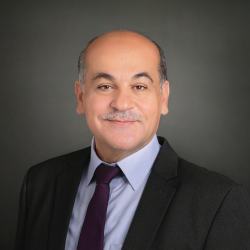
Dr. Muhieddin Amer
Professor and Chair

Dr. Abdulla Ismail
Professor
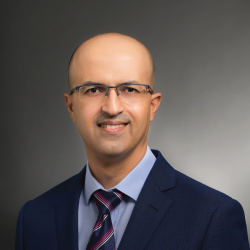
Dr. Wesam Almobaideen
Professor
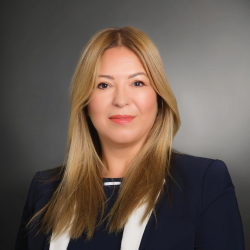
Dr. Boutheina Tlili
Associate Professor
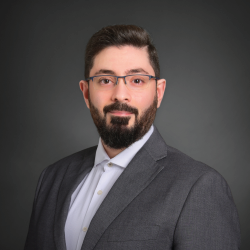
Dr. Khalil Al Hussaeni
Assistant Professor
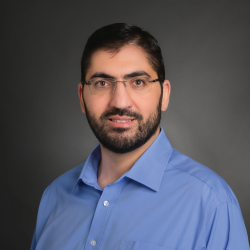
Dr. Omar Abdul Latif
Assistant Professor
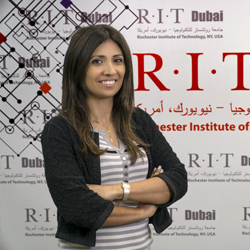
Dr. Jinane Mounsef
Assistant Professor
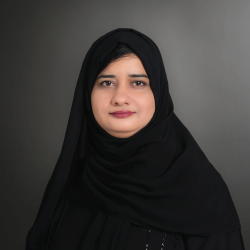
|
Eyad Shihabi Managing Director, BT |
Ghada Elkeissi Head of Professional Services, AWS |
||||||||||
|
Taha Khalifa Regional General Manager, Middle East Intel Corp |
Dr. Ayman ElNashar VP and Head – Technology Architecture, Emirates Integrated
|
||||||||||
|
Ghanim Al Falasi Senior VP – Corporate Services Dubai Silicon Oasis Authority
|
Diyaa Zebian Executive Partner Archinnova |
||||||||||
|
Dr. Mahmoud Sherif Head of Technology and IT Strategy Emirates Integrated
|
Bashar Kilani Territory Executive - Middle East IBM |
||||||||||
|
Dr. Raed Shubair Senior Advisor, Office of Undersecretary for Research Affiliate, MIT
|
